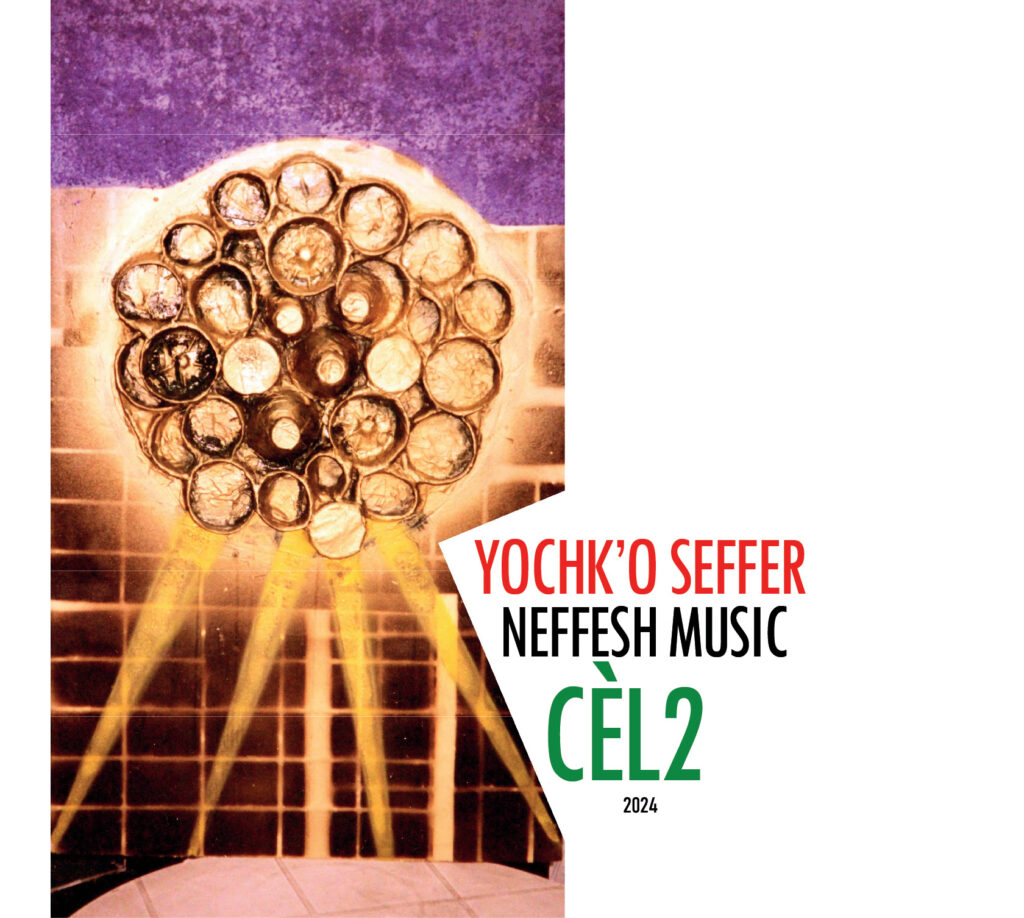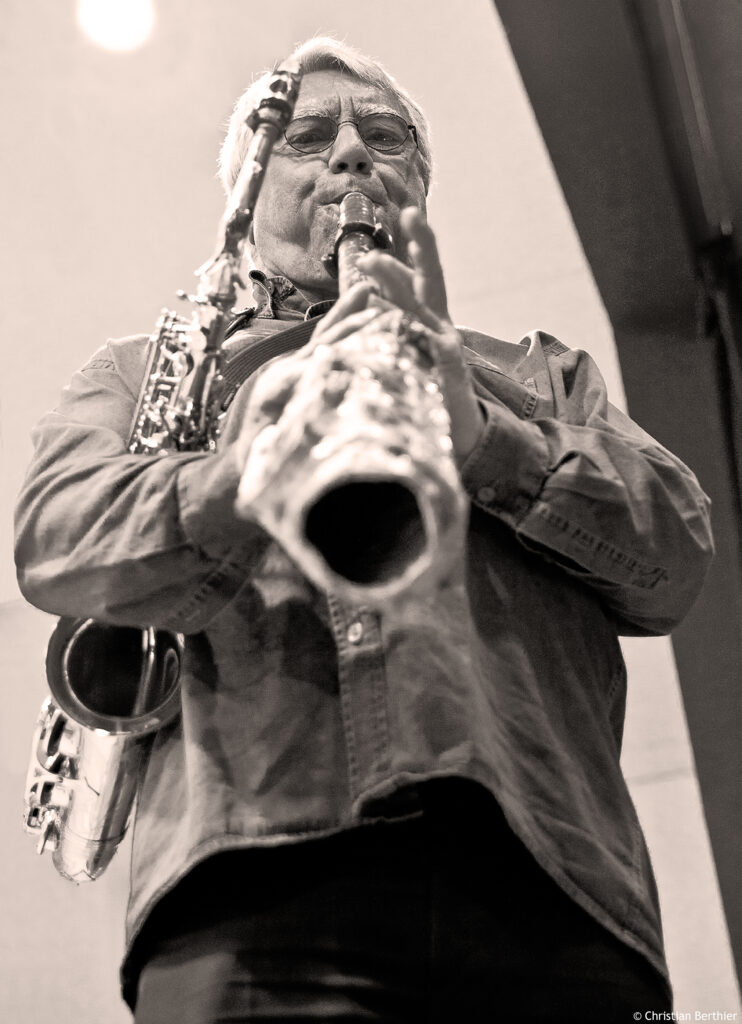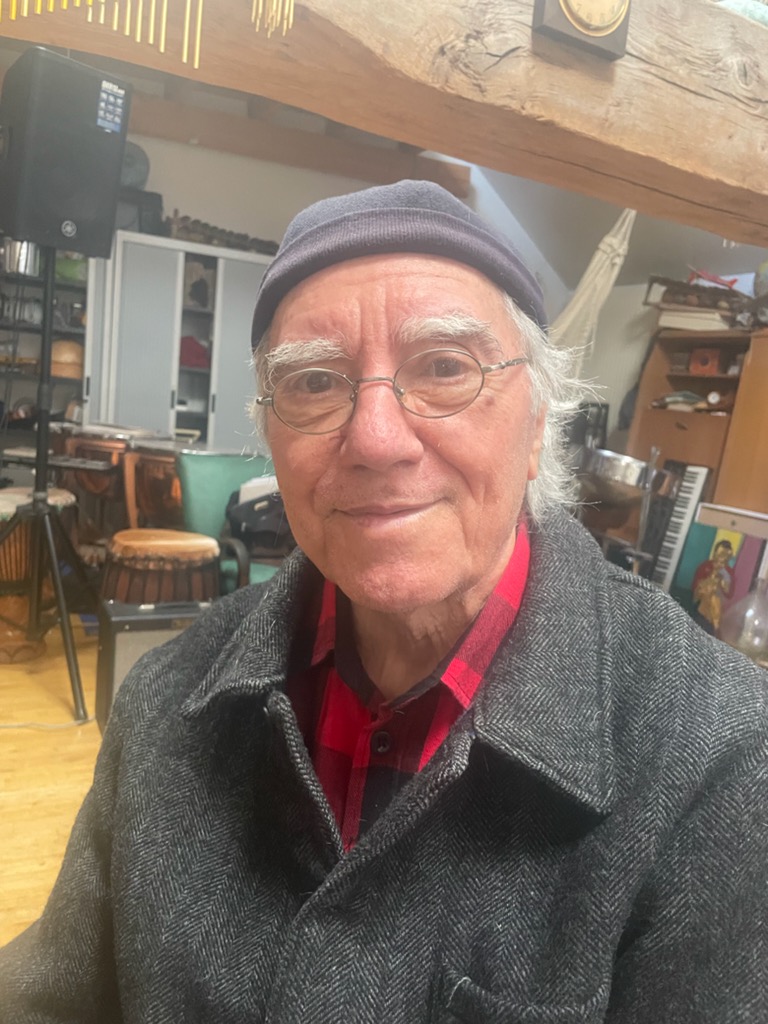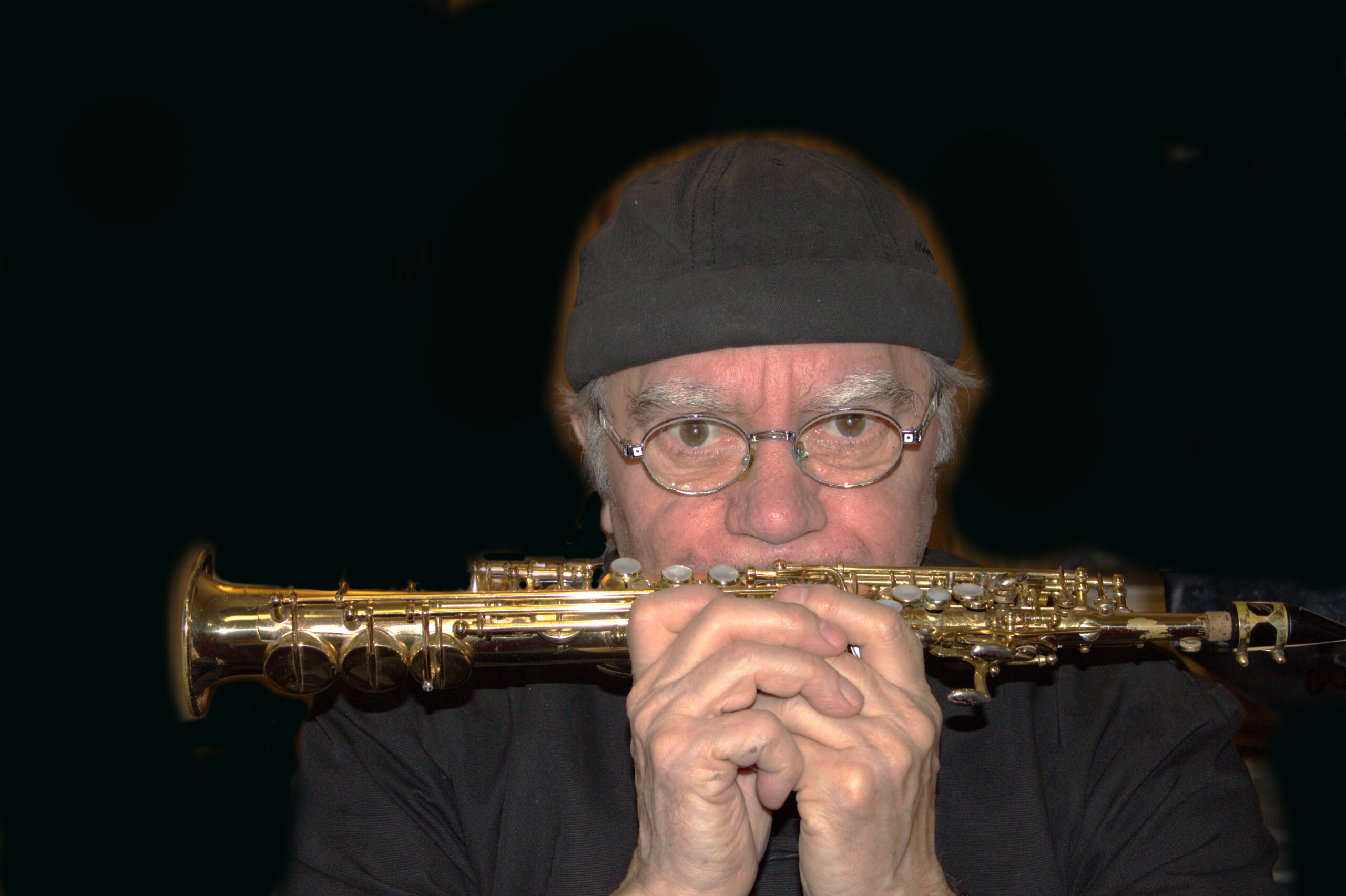Yochk’o Seffer Talks ‘Cèl2’: Bridging Decades of Music
Yochk’o Seffer’s ‘Cèl2’ is a sprawling triple album that defies time and style, weaving together four decades of fearless exploration at the intersection of contemporary music and jazz.
This ambitious release gathers a rich tapestry of works: a 2017 tribute to John Coltrane marking the 50th anniversary of his death, featuring multiple renditions of ‘Naima’ and ‘Love’; a previously unheard 1978 duo recording with violinist Kathy Lajos Horvath; sonnets by Didier Malherbe set to Seffer’s evocative compositions; and fresh pieces from 2024. Seffer’s artistry transcends eras, treating past, present, and future as illusions, while his music pulses with kinetic energy and spiritual depth. Grounded in a Hungarian heritage yet shaped by a lifelong relationship with France, his work is a meditation on transformation—both personal and musical. ‘Cèl2’ is a continuous metamorphosis, a bold, poetic statement from one of the most distinctive musicians.

“I enjoy imagining future music by extrapolating from the past”
‘Cèl2’ spans decades, from your 1978 recordings with Kathy Lajos Horvath to your recent pieces from 2024. What is it like to bring together different eras of your work in a single album? Has time changed the way you hear or interpret these recordings?
Yochk’O Seffer: As written on the covers of my last two CDs, past, present, and future are mere illusions. I enjoy performing past works using modern technologies or playing techniques to root them in the present, just as much as I enjoy imagining future music by extrapolating from the past or creating something entirely new.
The first CD pays tribute to Coltrane, with several versions of ‘Naima’ and a cover of ‘Love.’ What is it about Coltrane that still calls to you? Do you feel you approach his compositions differently now than you did earlier in your career?
The first CD dedicated to John Coltrane dates back to 2017. These days, I don’t play Coltrane anymore except when using François (Causse)’s computer setups to expand the sound of that immense musician. In any case, I was never able to reproduce his sound due to my own physical makeup.
Your composition ‘Emlékszem Rá’ (which translates to “I Remember It”) suggests a deep sense of memory. Is it nostalgia, homage, or something else? What do you remember when playing this piece?
It’s simply a rightful tribute to an exceptional musician John Coltrane.
The second CD, Születés és a Halál (‘Birth and Death’), is a three-part extended piece. Could you tell us about the emotional or narrative arc of this work? Is it a purely musical meditation on life and death, or does it also contain a more personal or philosophical statement?
It’s a blend of several elements. At the time, Lajos and I were deeply immersed in metaphysical exploration. Darkness and silence had such strong significance for him that he had to sleep with the lights and radio on full blast. As for me, I was studying Kabbalah with a Master, so life and death were central to our reflections. You can hear that in this suite, which was improvised in a near telepathic way. I should add that the piece reflects my beliefs of that period. I no longer feel the same way, but the music remains extraordinary.
You collaborated with Didier Malherbe on ‘L’anche des métamorphoses,’ setting his poetry to music. How did this collaboration unfold? Did you shape the music around his words, or was it more of a mutual metamorphosis?
Initially, I wanted to create a suite inspired by ‘Pierrot Lunaire’ by Schönberg. I wrote the music imagining it sung by a coloratura opera singer. Didier preferred to recite his poems, which I eventually accepted. But I’m not entirely satisfied with the outcome as it doesn’t align with my original vision. I wanted a miniature opera. Still, the text is so powerful with its imagery of reeds, the very reeds that have shaped the lives of wind musicians since the beginning.
Metamorphosis seems to be a recurring theme in your work (‘Metabolisme,’ ‘Neffesh Music,’ ‘Délire’). Do you see music itself as an act of transformation for both the listener and the performer?
Transformation and even elevation are essential. The goal is to help people grow and rise. And if composer, performer, and listener all ascend together, that’s the most beautiful thing there is.
Several of the titles like ‘Mozgalom’ (movement) and ‘Kalapács-Tánca’ (Dance of the Pans) suggest motion, rhythm, even physicality. Is there a kind of kinetic energy that runs through ‘Cèl2’?
Absolutely. Contemporary music today is in the hands of intellectuals, most of whom lack inner vision. Regardless of the musical style, it must come from within even if form is also crucial. Right now, everything is focused on form and that’s a mistake in my opinion. Energy is the only thing that truly matters.
In ‘Sonata Ferencnek,’ who is Ferenc, and why was this sonata dedicated to him?
Ferenc is François in Hungarian. And this François is François Causse, whom I care for deeply. He has supported me for forty years. I owe him a great deal.
Your work often unfolds through long compositions where themes evolve over extended periods. What draws you to this expansive approach, and how do you know when a piece has reached its final form?
I don’t think in terms of long or short. At some point, I feel it is finished. There are developments: a well-structured beginning, then the freedom of each improviser, an intermezzo, and a return to the beginning transformed, somewhat like sonata form. After that, I can cut anywhere inside to assemble the different parts as I wish. But there is no formula. Just the poetry of the moment.
You have always had a strong Hungarian identity in your music, but your career has been deeply connected to France. How do you balance these two musical and cultural heritages?
I have a Hungarian temperament. I have played fifty concerts in the US, and for nothing in the world would I have lived there. From the age of ten, I looked at Paris on the atlas. France is a permanent mess and it is the most beautiful country in the world. The French do not realize this. The French are cool.

“Except for Coltrane, I have not been influenced by anyone.”
Over the years, you have worked with many great musicians. How has collaboration shaped your voice as an artist? Do you approach improvisation differently when working with someone like François Causse or, say, Kathy Lajos Horvath?
Except for Coltrane, I have not been influenced by anyone. I have kept a clear direction for over fifty years. I owe this to Magma and Christian Vander who told me, “Be yourself, there is nothing better.”
The saxophone is often described as a voice, but for you, it seems more like an extension of thought itself. Do you find that your instrument shapes how you compose, or do your compositions exist independently before finding their way to the saxophone?
Not at all. Even if you imagine the saxophone, you can always transpose the music to other instruments.
If you could have a conversation with the Yochk’o Seffer of, say, ‘Perception’ (1971) or ‘Neffesh Music’ (1976), what do you think he would ask you?
“Have I remained myself and stayed true to my convictions?”
Many of your works have a deeply spiritual dimension, whether through Jewish mysticism (‘Neffesh Music’) or existential themes (‘Birth and Death’). Do you see your music as a form of spiritual exploration?
I had a Master in 1976 who taught me Kabbalah and you can feel it in the music. It was a discovery of the visible and invisible universe, but I do not like to talk about it anymore. It is over for me.
In the 1970s, the idea of “spiritual jazz” was closely linked to certain socio-political movements. Do you think this connection still exists today, or has its meaning evolved?
Today everything is abandoned and must be rebuilt. We live in a colossal mess, and I do not see how we will get out of it.

If ‘Cèl2’ were to introduce your work to a whole new audience, what would you expect them to take away from it?
I would expect the audience to be happy to hear the music and eager to listen to ‘Cèl3’!
Klemen Breznikar
Yochk’O Seffer Official Website / Facebook / Instagram
ACEL Official Official Website
Yochk’O Seffer | Interview | ZAO





Merci pour l’entrevue